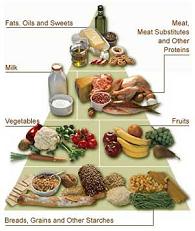In this post, I’m going to take a fresh look at malnutrition, a cause that interests me a lot. I have two goals in mind here:
- Think through the issue, and what I’d need to know to decide where to donate. This is particularly relevant since there’s a good chance we’ll be studying malnutrition in the coming year.
- Give you a sense of what an individual donor would have to do to make an informed giving decision (and how quickly finding information becomes tricky). This process is roughly what we went through almost two years ago, ultimately resulting in GiveWell’s creation.

The problem
Malnutrition is a major debilitating factor in the developing world:
- According to this report from UNCIEF, malnutrition plays a role in 50% of childhood mortality.
- The New York Times has reported that iodine deficiency is “the leading preventable cause of mental retardation. Even moderate deficiency, especially in pregnant women and infants lowers intelligence by 10 to 15 I.Q. points.”We’ve learned a bit more about malnutrition (for the charity nerds among you), but … 50% of childhood mortality? Leading preventable cause of mental retardation? 10-15 I.Q. points? Wow. Where should I give?
Potential solutions
There are several interventions that seem like they fit with this problem. Each raises its own set of concerns about whether it’s being implemented effectively.
- Educating people (or helping them) eat a more varied diet. As with all “training” interventions, I’d be concerned about whether an organization is effectively bridging cultural divides and changing behavior, not easy things to do. I’d want to know 1) what’s taught (i.e., does it seem logical that the program offered would lead to the desired effect) and 2) how the organization monitors that those who are taught take action consistent with what’s taught in the class.
- Food fortified with specific nutrients. This raises some concerns about economic disruption (i.e., competing with local farmers), as well as questions about whether people are eating sufficient quantities to get the nutrients they need.
- Direct administration of a vitamin supplement. Here the specifics of the vitamin are very important: it’s essential to know the number of doses necessary, how the organization monitors the number of doses given, and the consistency with which the supplement works. It’s easy to imagine a vitamin supplementation program which is ineffective because of wasted supplements (i.e., those that the intended users never take) or too few (or too many) doses given to the same person.
- Removal of other causes of malnutrition (i.e., treating intestinal parasites). It’s important to know how effective treatments are in the short and long term.
When trying to combat malnutrition, my aim isn’t merely to help some people imrpove their nutritional status to some extent it’s to help as many people improve their nutritional status to the greatest degree possible. In order to find the most effective intervention, I’d try to answer these questions:
- What specific nutrients are people missing that affect them? Without knowing this, there’s no way to decide (regardless of the type of intervention listed above) which nutrients are the most important. Is it vitamin A? Iron? Iodine?
- What happens because of each type of deficiency (e.g., anemia because of lack of iron, blindness because of lack of vitamin A, death)? How likely are each of these outcomes given a particular deficiency? Understanding this will help me decide which sort of program is most appealing to me – not a fully scientific/objective decision, since my view of the “good life” affects which disorders I most want to address.
- In what region do the people most affected live? What age are they? Any special circumstances (i.e., pregnant women)? Before focusing on helping a group of people, I think it’s important to know what other obstacles they face. Personally, I want to help people for which malnutrition is the main (or a significant) obstacle to living a full, happy life.
Next time, I’m going to try to find some answers as well as an organization to support.
